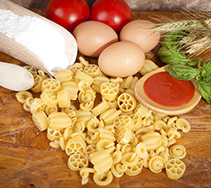Your metabolism is not making you fat, you are making you fat. Yes, I said it. Don’t blame being overweight on your metabolism, blame it on your dietary habits and your lack of exercise. I’m not trying to offend anyone, so don’t take this personally. I’ve been a personal trainer for over 15 years and I can honestly say that maybe 5% of my clients that are overweight or obese can blame it on their metabolism due to serious illnesses and/or medications. If you research this subject, most health/fitness professionals agree that it is the lack of discipline and consistency individuals have when it comes to proper eating and daily exercise.
Metabolism is defined as the chemical processes the body needs to sustain life. You may have even heard someone you know say, “I can’t lose weight because I have a slow metabolism”. There may be a little truth to this excuse that many people use, however, other factors such as how many calories you consume and how much exercise is performed greatly out-weighs having a “slow metabolism”.
Your metabolism is influenced by a few factors: age, sex, proportion of lean body mass, and heredity. After the age of 40 your metabolism starts to slow down by approximately 5%; men tend to burn more calories at rest than women do; having a higher amount of lean body mass can lead to a higher basal metabolic rate (BMR); lastly, some lucky people are just born with a high metabolism.
It is a fact that people that carry more weight on their body also have higher metabolisms because the body has to work harder to sustain itself. That’s why it is much easier to lose weight and reach short terms goals at the beginning of a new diet/exercise program and harder later on in the program. When an individual is overweight, the metabolism is running so high that cutting back on calories will result in very rapid weight loss. Then, when you lose body fat and muscle, your body needs fewer calories to sustain itself. That helps explain why it’s so easy to put the weight back on after you lose it. Most people go back to old habits of eating the same amount of calories they ate while being overweight.
In order to keep your metabolism high you must exercise and eat properly.
Cardiovascular training must be done in order to burn body fat and strength training must be done in order to build and maintain muscle mass. Muscle burns more calories at rest than fat.
Eating smaller, more frequent meals throughout the day also keeps your metabolism high. Six smaller meals spread out about every three hours throughout the day is the best way to do it. Larger meals are more difficult for the body to digest efficiently. Eating smaller meals more often will help to burn more calories throughout the day.
Lastly, I want to discuss factors that can’t significantly affect your metabolism. Weight-loss supplements, regardless of their claims, will not increase your metabolism. Supplements can be dangerous, are not researched enough, not backed by the FDA, and not recommended by this personal trainer. Also we’ve all heard on television about certain foods such as green tea, chili peppers, and other spicy foods that can increase our metabolism. However, most real research shows that these foods cause only a small, very short term boost. These foods are healthy and have other benefits for our bodies, but please don’t consume these thinking you are going to drastically increase your metabolism for the rest of your life.
Metabolism is a tricky subject when it comes to weight loss. People need to make informed decisions when it comes to dietary behaviors. I hope we’ve cleared up some misconceptions about eating and exercise and the role they play on your metabolism. When it comes to weight loss, we must exercise consistently, eat smaller meals, and be patient. You must make these factors a part of your life, for the rest of your life. Following these guidelines will help you to reach the goals you’ve set and maintain a healthy lifestyle.






Leave a Reply